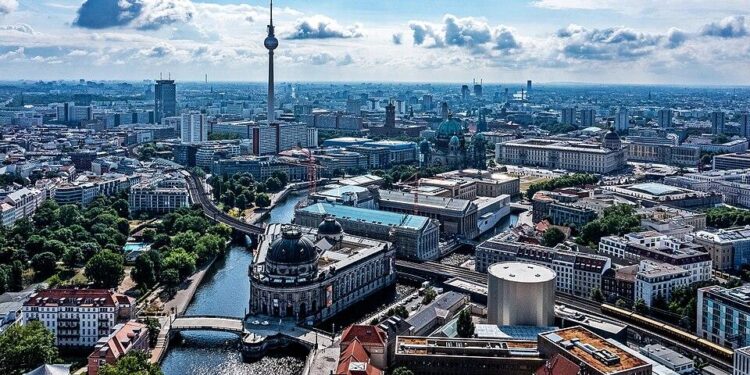Germany, France, and Poland Unite to Counter Democratic Backsliding in Georgia
In a notable demonstration of European unity, Germany, France, and Poland have collectively expressed deep concern over the recent deterioration of democratic principles in Georgia. This alliance underscores the urgency felt by key EU members regarding political shifts that threaten the integrity of Georgian democratic institutions and electoral processes. Their joint statement reflects broader apprehensions within Europe about preserving democratic values in a country striving to deepen its integration with Western democracies.
European Leaders Highlight Threats to Democracy in Georgia
The governments of these three nations have released a strong communiqué condemning what they identify as significant setbacks for democracy in Georgia. They point out alarming infringements on essential freedoms including media independence, judicial neutrality, and political diversity. This collective stance not only serves as a warning but also reaffirms their commitment to fostering democratic resilience across Europe.
Georgia is currently grappling with intense domestic political turmoil that endangers its democratic foundations. The European officials emphasize several pressing concerns:
- Restrictions on Press Freedom: Ongoing harassment and pressure tactics targeting journalists undermine free speech.
- Judiciary Undermining: Allegations indicate government interference compromising court impartiality.
- Polarized Political Environment: Heightened tensions between ruling parties and opposition factions fuel instability.
The EU‚Äôs vigilant approach aims to motivate reforms while urging Georgian authorities to recommit fully to upholding democracy‚Äôs core pillars‚ÄĒprotecting civil liberties and ensuring transparent governance aligned with European standards.
The Need for Enhanced EU Involvement in Safeguarding Democracy
The evolving crisis has intensified demands for stronger EU engagement mechanisms concerning Eastern Partnership countries like Georgia. With Germany, France, and Poland openly criticizing the erosion of democratic norms there, Brussels faces increasing pressure to adopt more comprehensive strategies beyond traditional election monitoring‚ÄĒextending support toward civil society activism and safeguarding independent journalism.
A multifaceted response from the EU could include initiatives such as:
- Broadened Election Observation Efforts: Deploying impartial observers consistently during elections ensures transparency at every stage.
- Sustained Funding for Grassroots Organizations: Increasing resources dedicated to NGOs championing democracy at local levels strengthens civic engagement.
- Create Transparent Reporting Platforms: Establish accessible channels where violations against democratic norms can be reported safely without fear of retaliation.
An effective partnership involving both EU member states alongside Georgian stakeholders is crucial for addressing governance weaknesses decisively. Reinforcing accountability frameworks while adhering strictly to European standards could help reverse current trends threatening Georgia’s democratic stability.
Navigating Political Stability: Strategies To Strengthen Democratic Foundations
The recent criticism from Germany, France, and Poland highlights an urgent need for holistic approaches aimed at restoring trust within Georgian democracy. Central among these efforts is promoting constructive dialogue across entrenched political divides‚ÄĒa vital step toward consensus-building around shared national priorities despite ideological differences.[1]
Nurturing an active civil society remains equally important; empowered citizen groups act as watchdogs holding power accountable while amplifying underrepresented voices.[2]
An impactful strategy may also involve organizing regular public forums designed specifically to engage communities directly affected by policy decisions‚ÄĒencouraging open conversations that foster social cohesion rather than deepen divisions.[3]
| Main Approaches | Main Objectives |
|---|---|
| Cultivating Inclusive Dialogue | Create communication bridges between opposing factions |
| Energizing Civil Society Networks | Pursue active citizen participation ensuring governmental transparency |
















